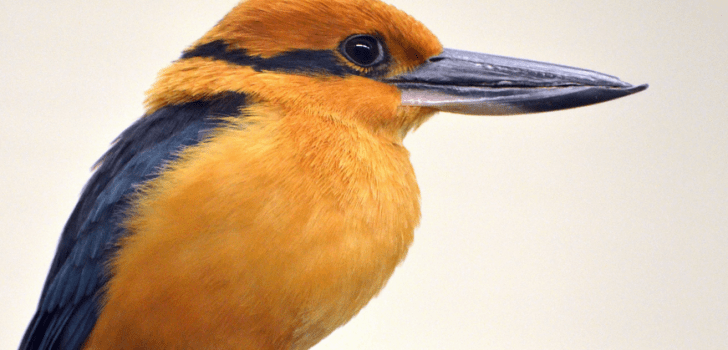The extremely rare moustached kingfisher bird was photographed and then promptly killed.
The American Museum of Natural History released the first ever photographs of the elusive bird. The pictures featured its vibrant blue color, suggesting that it was in extremely good health.
Much to the anger of environmentalists, researchers decided to kill the rare bird in order to study it in further detail. Museum representative Paul Sweet said that the population of the bird was substantial enough to handle the loss of one bird.
The bird was discovered in the remote jungle highlands of the Solomon Islands. A team of researchers who were working for the museum heard the bird’s distinctive call, and they quickly located the bird before it flew away right before their eyes. It took the group four days to capture the elusive bird.
Researcher Chris Filardi said, “When I came upon the netted bird in the cool shadowy light of the forest I gasped aloud, ‘Oh my god, the kingfisher!’ One of the most poorly known birds in the world was there, in front of me, like a creature of myth come to life.”
The research team promptly took pictures of the moustached kingfisher, and they recorded its distinct calls. The bird is listed as “endangered” by the International Union for Conservation of Nature. The union believes that there are only 250 to 1,000 mature birds of this species left in the wild.
Of course, the ultimate decision to kill the bird was met with a large amount of outrage.
Professor emeritus of ecology from the University of Colorado Marc Bekoff wrote, “Killing ‘in the name of conservation’ or ‘in the name of education’ or ‘in the name of whatever’ simply needs to stop. It is wrong and sets a horrific precedent for future research and for children. Imagine what a youngster would think if he or she heard something like, ‘I met a rare and gorgeous bird today…and I killed him.’ Even if this handsome male were a member of a common species, there was no reason to kill him. It sickens me that this practice continues and I hope more people will work hard to put an end to it right now, before more fascinating animals are killed.”
Hopefully in the future, scientists won’t be so quick to kill an innocent animal for research purposes.
Stay Connected